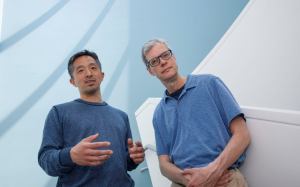Public funding of science no business for public
Science falls victim to “political advocacy circus,” researcher says
The public should not be asked to decide which science programs should receive public funding, says Daniel Sarewitz, director of the Consortium for Science, Policy & Outcomes at Arizona State University.
Sarewitz gave a presentation today at the AAAS annual meetingon the negative aspects of excessive voter involvement in science funding . “While increased democratization in the sciences is certainly desirable, putting it to the public to decide which programs areworthy of funding and which are not is an absurd way to fund science,” he said.
Sarewitz said that the problem with direct democracy is that it does not give people an opportunity to choose, but rather creates a “political advocacy circus.” He gave the example of Proposition 71, a $3 billion stem cell research initiative passed in California in 2004 to avoid the Bush administration’s ban federal funding of embryonic stem cell research. Because the measure was deliberately designed to avoid government involvement, there was little to no oversight of the research, Sarewitz said.
Sarewitz said that democracy should be more about open process and transparent institutions. “There is a reason that we have representative democracy in this country: it is because it is doubtful that people — with
the exception of specifically interested parties — have the time to study and investigate in any detail the topics being voted on.”




